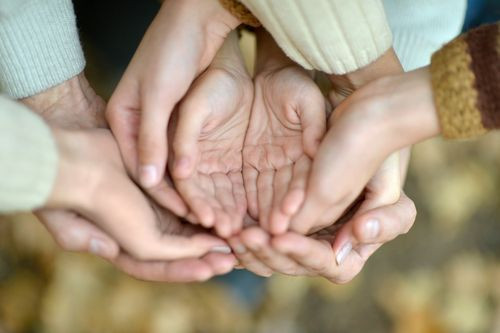Kids With Autism See Improvements With Parents' Help: The Power Of Group Therapy

Parents of autistic children are taking it upon themselves to improve communication and language problems in group therapy sessions. Autism is a complex brain disorder that changes a person’s behavior from a very young age, including their social and communication skills. Researchers are constantly looking for a better treatment approach to improve the substantial impairments characterized by autism, and doctors at Stanford University Medical Center have just made successful strides in the effort.
The newly discovered potential of group therapy was published in the Journal of Child Psychology and Psychiatry, which will hopefully provide hope and encouragement for parents to become more involved in their child’s treatment. The study analyzed how 53 children with autism and their parents faired in a 12-week group therapy program. The children, who were between the ages of 2 and 6, all had language delays. One of the early signs of language difficulties, symptomatic of autism, begins at 9 months. When a child doesn’t babble “mama” and “dad,” or won’t respond to hearing their own name, parents can interpret that as a red flag for developmental problems, according to the Autism Science Foundation. The group therapy class took a difficult approach to treatment and taught parents how to verbalize with their child using a reward system.
"We're teaching parents to become more than parents," the study's lead author, Antonio Hardan, professor of psychiatry and behavioral sciences, who directs the hospital's Autism and Developmental Disabilities Clinic, said in a press release. "What we're most excited about is that parents are able to learn this intervention and implement it with their kids. The child might say 'ba,' and you reward him by giving him the ball. Parents can create opportunities for this treatment to work at the dinner table, in the park, in the car, while they're out for a walk."
By the end of the study, 84 percent of parents were implementing the training correctly and children were showing greater improvements in their language skills. Not only were children communicating with a wider variety of words, but they were also using them correctly in sentences. Researchers were surprised by how quickly and effectually the group therapies worked. Parents need to start taking the role of trainers for their children because the growing number of diagnosed autistic children is growing too quickly for health care professionals to meet the demands.
"There are two benefits: The child can make progress, and the parents leave the treatment program better equipped to facilitate the child's development over the course of their daily routines," said study’s coauthor Grace Gengoux, a clinical assistant professor of psychiatry and behavioral sciences and a psychologist specializing in autism treatment at the hospital, said. "The ways that parents instinctually interact with children to guide language development may not work for a child with autism, which can frustrate parents. Other studies have shown that learning this treatment reduces parents' stress and improves their happiness. Parents benefit from knowing how to help their children learn."
To date, approximately one in 68 children in the United States has an autism spectrum disorder (ASD). Between 2012 and 2014, there has been a 30 percent increase in how many children are diagnosed with ASD and the prevalence continues to grow. There is currently no cure-all treatment for autism or single known cause; however, research is making rapid strides in figuring out how children develop the disorder in the first place. An autism diagnosis can seem overwhelming, but intervention programs are becoming more effective in reaching a child’s unique symptoms.
"Parents really do feel more empowered when they're in a group setting," the study’s coauthor Kari Berquist, a clinical instructor in psychiatry and behavioral sciences and an autism clinician, said in a press release. "They're talking, connecting, sharing their experiences. It gives them a sense of community."
Source: Libove R, Ardel C, Pillips J, Gengoux G, Harden A and Berquist K. A randomized controlled trial of Pivotal Response Treatment Group for parents of children with autism. Journal of Child Psychology and Psychiatry. 2014.
Published by Medicaldaily.com



























